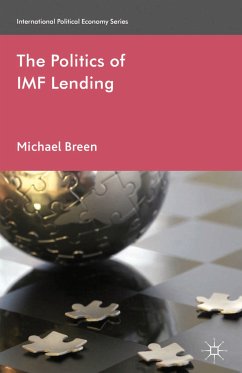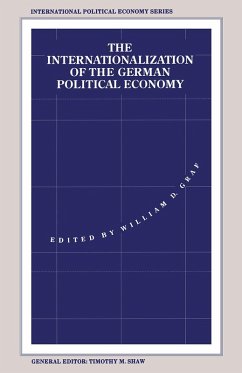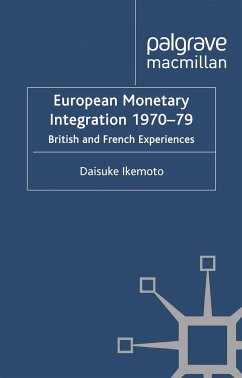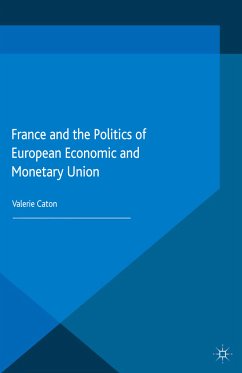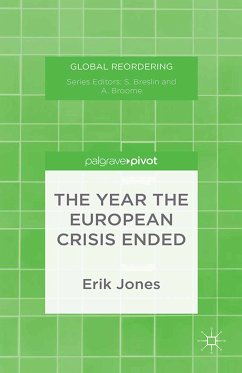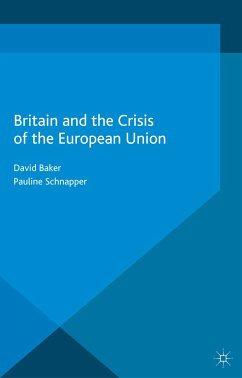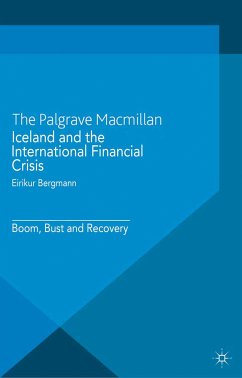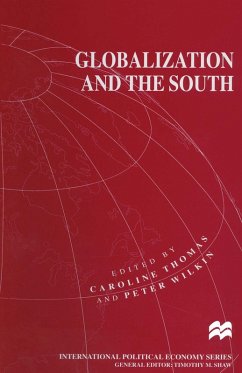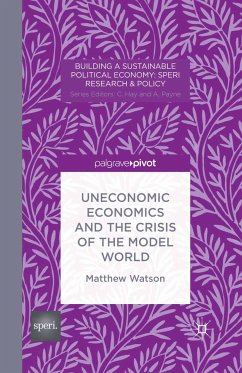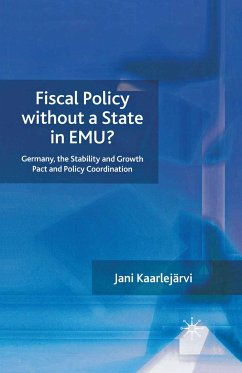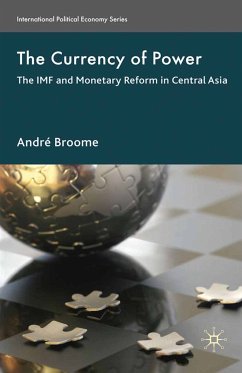

PAYBACK Punkte
20 °P sammeln!






This book examines how the International Monetary Fund engages in the politics of ideas to shape domestic institutional change. Drawing on case studies from post-Soviet Central Asia, André Broome explains that how governments interpret their policy options mediates the IMF's influence over economic reform during periods of crisis and uncertainty.
Dieser Download kann aus rechtlichen Gründen nur mit Rechnungsadresse in A, B, BG, CY, CZ, D, DK, EW, E, FIN, F, GR, HR, H, IRL, I, LT, L, LR, M, NL, PL, P, R, S, SLO, SK ausgeliefert werden.
ANDRÉ BROOME is Lecturer in International Political Economy in the Department of Political Science and International Studies, University of Birmingham, UK. He has published journal articles on the changing role of the International Monetary Fund as well as on the comparative politics of monetary and taxation reform.
Produktdetails
- Verlag: Palgrave Macmillan UK
- Seitenzahl: 219
- Erscheinungstermin: 10. März 2010
- Englisch
- ISBN-13: 9780230278059
- Artikelnr.: 45965160
'Broome's fascinating study does much to demystify the role of the International Monetary Fund in promoting economic liberalization around the world. Extensive fieldwork in post-Soviet Central Asia grounds an exemplary analysis of the normative and material conditions required for enduring policy change. His depiction of the Fund as reputational intermediary is subtle and convincing. Students of international economics, international political economy, and regional studies will find here an accessible and rewarding introduction to the real world of monetary and financial policy reform.' - Louis W. Pauly, Canada Research Chair in Globalization and Governance, University of Toronto, Canada
'The Currency of Power is an insightful
'The Currency of Power is an insightful
Mehr anzeigen
account of how the International Monetary Fund influences policies and policy-orientations among borrower governments. The book takes an original, fresh angle in looking at three central Asian Republics (Kazakhstan, Uzbekistan and the Kyrgyz Republic). Because these 'frontier' cases are under-studied, this focus makes for a valuable contribution in and of itself. But a further, fascinating pay-off is the contrast between countries in some ways starting with a blank slate in a formal institutional sense after the collapse of the Soviet Union, but also bound by a dense web of Soviet and pre-Soviet everyday, informal practices. Broome shows a deft touch in making sure that both formal and informal institutions are kept in the frame of his explanation, and in skilfully teasing out their interactions through the tumultuous transition period.
The book does the field a major service by puncturing several tenacious myths about the International Monetary Fund: it de-bunks the too easy sound-bite of the purported 'Washington consensus'; it persuasively demonstrates that the Fund is not just a tool of the United States or other powerful members; and it shows that the IMF rarely has the power to impose policies on unwillingborrowers. Instead, Broome presents a compelling and energetically-argued case that the intellectual and reputational role of the IMF has been far more important in shaping policies and institutions among borrower countries. Rather than the power of the purse strings, it is the IMF's templates and blinkers that do most to influence policy change among governments, especially during periods of high uncertainty. In examining these neglected cases and adroitly weaving together concepts from different schools of thought, The Currency of Power marks a very valuable scholarly contribution that will be of interest to all those studying international organisations and international political economy.' - Jason Sharman, Professor, Centre for Governance and Public Policy, and Queen Elizabeth II Fellow, Griffith University, Australia
The book does the field a major service by puncturing several tenacious myths about the International Monetary Fund: it de-bunks the too easy sound-bite of the purported 'Washington consensus'; it persuasively demonstrates that the Fund is not just a tool of the United States or other powerful members; and it shows that the IMF rarely has the power to impose policies on unwillingborrowers. Instead, Broome presents a compelling and energetically-argued case that the intellectual and reputational role of the IMF has been far more important in shaping policies and institutions among borrower countries. Rather than the power of the purse strings, it is the IMF's templates and blinkers that do most to influence policy change among governments, especially during periods of high uncertainty. In examining these neglected cases and adroitly weaving together concepts from different schools of thought, The Currency of Power marks a very valuable scholarly contribution that will be of interest to all those studying international organisations and international political economy.' - Jason Sharman, Professor, Centre for Governance and Public Policy, and Queen Elizabeth II Fellow, Griffith University, Australia
Schließen
Für dieses Produkt wurde noch keine Bewertung abgegeben. Wir würden uns sehr freuen, wenn du die erste Bewertung schreibst!
Eine Bewertung schreiben
Eine Bewertung schreiben
Andere Kunden interessierten sich für


